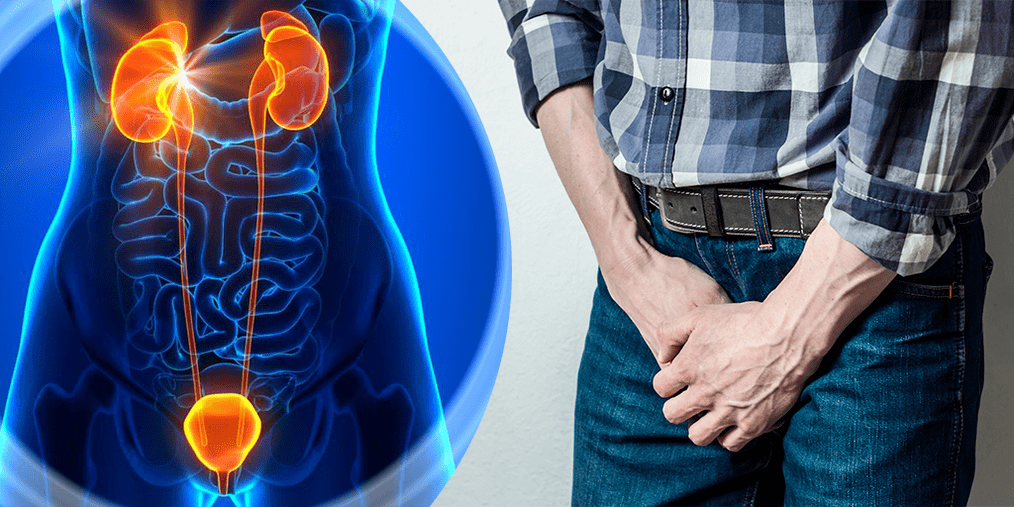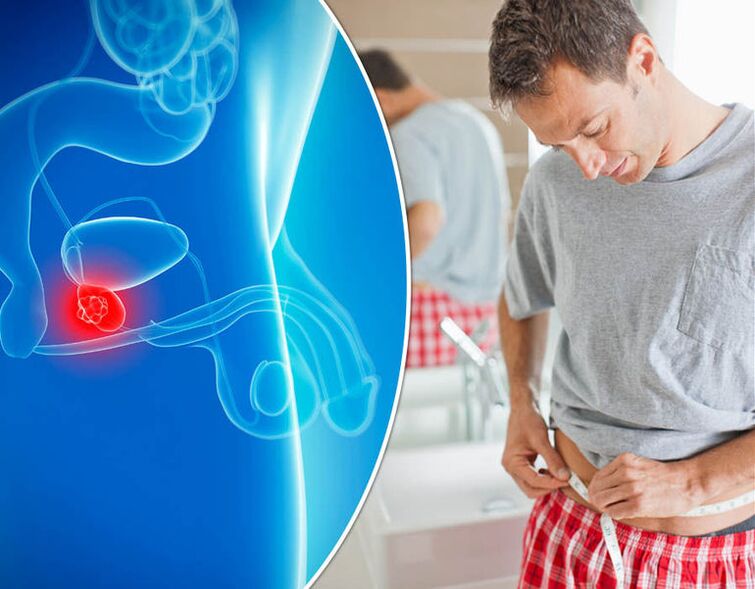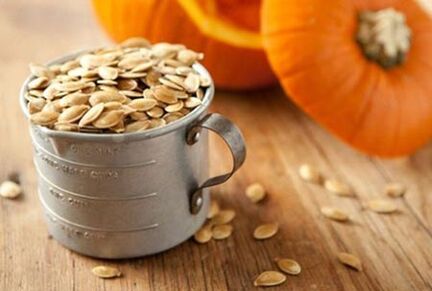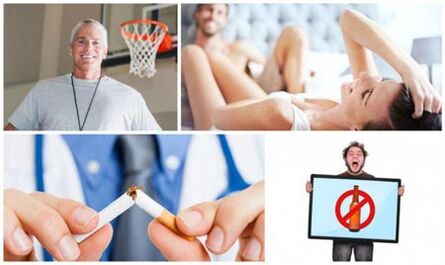Prostatitis is an inflammation of the prostate or prostate gland. It can often be increased as a result of inflammatory processes. In the article you will learn all about prostatitis: what is prostatitis, what are its causes, symptoms and treatment, characteristic characteristics.
There are many causes of prostatitis.
Symptoms of prostatitis in men may vary depending on the form, of course - acute or chronic. Non -bacterial acute and chronic prostatitis, acute prostatitis, infectious prostatitis are distinguished. In recent decades, the asymptomatic form of this male disease has been diagnosed more frequently.
Some men do not know what prostatitis is and are in no hurry to consult a doctor, even if there are symptoms of acute inflammation of the organ. The first signs of acute prostatitis in men are the rapid separation of urine, pain in the perineum, fever, and early ejaculation.
The signs of sharp prostate are the following:
General weakness, hyperthermia; chills, sometimes fever; Soreness in the area of the crotch with a pronounced nature, which gradually spreads into the groin and significantly increases during the emptying of the intestine or urine; frequent micration calls that do not carry a person with relief; Sweating intensification; woodcarving and itching in the prostate; feeling of constantly executed urine; Complaints of increased irritability. Bacterial prostatitis has the same symptoms.
The acute variety of the disease manifests itself very sharply. In a person, body temperature rises significantly and quickly, nausea and even vomiting occur. The urination process is impaired, rubbing and pain occur.
Chronic prostatitis can often have an asymptomatic course. Patients may not even pay attention to the signs of discomfort and prostate damage. The manifestations of the chronic variety of pathology are as follows:
worsening of well -being; violation of erection and early ejaculation; nerve dysfunction; periodic and passing pain in the pubic, groin, perineum; change in the speed of sexual intercourse (and it can prolong and significantly shorten); lack of bright sensations during intimate contact; the appearance of mucous membranes or whitish discharge from the urethra, especially in the morning; Impaired urination (it becomes common, periodic, sometimes one has to press to empty the bladder completely); The appearance of residual urine. The symptoms and treatment of prostatitis are interconnected. If men have an asymptomatic form of pathology, then it can be very difficult to diagnose. At the same time, the appointment of the right medicine will help you quickly get rid of inflammatory phenomena in the prostate.
Characteristics of Pathology Diagnosis In order to make the correct diagnosis, the patient should contact the urologist. In addition to mandatory medical examination, such tests and examinations are required.
Urine analysis. A general study is required with the microflora study. Identification of pathologies that can be transmitted sexually. Reduction from the urethra is able to detect the presence of a bacterial infection. Analysis of sperm. Pelvic ultrasound. Urography. Gland biopsy (if there are suspicions of cancer). The diagnosis of prostatitis should be all -consistent. The patient cannot independently check the prostate: you should see a doctor for this and have a complex of diagnostic measures.
Methods of treating the disease There are different approaches to the treatment of acute and chronic inflammation of the prostate gland. But in any case, the patient needs prostatitis, high rate and cheap medicines.
The tactics of the treatment of acute prostatitis is this:
in -depth adherence to bed rest; use of antibiotics; the appointment of drugs that contribute to the normalization of blood microcirculation in the pelvis and increase its turnover; the use of non -steroidal anti -inflammatory drugs to reduce the intensity of pain and inflammation; The use of more strong drugs if the prostate inflammation syndrome is very strong; The agents are prescribed for the rapid elimination of the inflammatory urological process; To relieve pain and inflammatory phenomena, rectal prostatitis candles are used with anti -inflammatory and analgesic effects. With severe body poisoning, inflammatory products, electrolytes and substances that alleviate poisoning should be administered.
Antibiotic candles are indicated in cases where the patient has severe intolerance to antibacterial drugs. Local use of antibiotics reduces the risk of systemic damage to the body.
There are cases where the patient has to undergo surgery. In particular, it is urgently needed when urine retention, when the patient cannot do the urine independently.
Important! The use of antibiotics in the bacterial form of prostatitis is a must. Without them, the disease can develop in chronic and difficult to cure form.
Antibiotics with prostate inflammation With inflammation of this body, modern effective antibacterial agents are prescribed. Such therapy is required to kill a gram -negative microflora. Fluoroquinolone preparations help fight the process of tuberculosis. They are usually prescribed intramuscularly. Antibiotics can be prescribed as a first aid for the acute beginning of the pathology.
Forchinolone preparations are effective in the treatment of acute and chronic forms of prostate inflammation as they spread in its tissue and remain there in the high concentrations necessary for the death of microorganisms.
The risk of side effects usually does not exceed 17%. It can increase significantly when the patient suffers from pathologies of the kidneys and liver. Among the side effects very often develop:
nausea, vomiting; dizziness; increased sensitivity to the skin to sunlight; Heart rate disorder. Characteristics of the treatment of chronic prostatitis The best results are given through complete treatment. Antibacterial drugs should only be prescribed if the cause of such a disease is accurately isolated. The treatment tactics of patients with chronic prostatitis are as follows.
The use of non -steroidal anti -inflammatory drugs. The use of medicines that contribute to the leakage of the lymph from the affected area of the body. The purpose of immunomodulators. They allow you to remove the swelling and reduce the likelihood of blood clots. The purpose of cholinolithics is to reduce the intensity of inflammatory processes. Erection problems require antidepressants and soothing drugs. In order to strengthen the pelvic muscles, it is necessary to perform therapeutic exercises. A positive effect is given through physiotherapy treatment - such as rectal electrophoresis, hyperthermia, UHF and more. For prostate massage Prostate massage is not only a preventative but also a therapeutic procedure. In acute inflammation it will harm. However, with chronic prostatitis, massage is able to eliminate stagnant phenomena and thus prevent more and more progression of pathology.
It is better to perform this procedure with a doctor. The specialist does not assign a massage if the patient has acute hemorrhoids or cracks in the anus.
Prostatitis During the treatment of chronic prostatitis, it is recommended to adjust the diet. The patients follow:
Refuse to drink alcoholic beverages; Limit the use of salt; Provide drinking mode (consume at least 1, 5 liters of water daily). With exacerbation it is necessary to exclude fried foods. All dishes should be stewed. It is advisable to exclude protein products.
During the treatment of acute prostatitis, you should completely refuse (or minimize) such dishes and drinks:
coffee and tea (these drinks contain a large amount of caffeine that irritates the organ); canned food and smoked meats (including households); broth; cabbage and legumes (these products cause fermentation processes in the intestine, which is why the patient's condition worsens); White flour products. If you do not follow such recommendations, even the most effective remedies against this disease will be ineffective.
For the popular treatment There are many folk methods for the treatment of prostatitis. It is not recommended to use them at the same time. Before treating prostatitis with folk remedies, it is desirable to consult a doctor: it will help to choose the most appropriate medicine.
Effective treatment of prostatitis at home can be done with the help of pumpkin seeds. Using only 30 such seeds every day, one can cure prostatitis. The only condition for effective treatment is that pumpkin seeds must be undervalued. The course of prostate treatment is at least 3 weeks.
Traditional medicine uses different herbs of prostatitis. In particular, herbal fees are used to prepare infusions and decoctions that include such plants:
nettle; cranberries; chamomile; chestnut; Sealandin; St. John's Pete; Parsley and parsley seeds. It is useful to drink tea with platypus leaves. A beneficial effect on the body of a man has chag, Kalancho, Aloe. Sea bean oil is shown to prevent inflammation of the prostate. It contains a large amount of vitamins and biologically active components.
With prostatitis you can take a hot tub. It helps to quickly relieve inflammation and spasm of the prostate. A few drops of natural essential oils are added to the bathroom.
At home you can use Chinese transdermal plasters. They improve the condition of the prostate gland, relieve inflammatory processes.
Complications The most dangerous complication of acute and chronic prostatitis is the prostate adenoma. Symptoms of prostate hyperplasia are:
Disruption of the urine emptying process: urine begins to stand out slowly, sometimes even drops; the appearance of a sharp desire for urination; The appearance of a feeling of incomplete emptying resulting from the fact that the enlarged prostate reduces the volume of urine; Burning in the prostate and pain during micro; Significant extension of urine time; pain during erection and ejaculation; The presence of blood in the urine or mucus; A sudden fall in appetite; constipation; General weakness. Prevention of prostatitis Preventing prostatitis at home includes such recommendations.
The amount of alcohol consumed should be minimized. In order to improve the health of the prostate gland, smoking must be excluded. It is because of it that small oxygen enters its tissue, which is why signs of prostatitis, impotence, appear. You have to fight hypodynamia. To do this, you need to move more, to get involved in physical culture. We need to deal with stress, to minimize the influence of negative emotions. Hypothermia should be avoided. In the car you have to equip a seat with heating. It is forbidden to lift weights, especially if one has poor physical training. The contrast shower improves well. It can be taken in front of a roof. You should include more raw fruits, vegetables, berries in the diet. Pumpkin seeds, garlic, honey, plums, parsley, nuts are useful. It is necessary to exclude mayonnaise, ketchup, salting and marinades from the menu. It is recommended that exercises be performed to prevent stagnant phenomena in the pelvis and WARNING DHPH. To increase potency, you need to establish a sex life. Men's health is very harmful to interrupt sexual contact. Long -term sexual abstinence is not allowed. Properly established physical and sexual activity, compliance with all the doctor's recommendations help to get rid of prostatitis. Prostatitis is dangerous as it is able to cause constant disorders of sexual function and infertility.



























